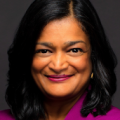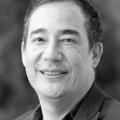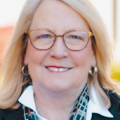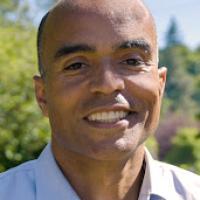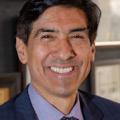36th Legislative District
Not in 36th Legislative District? Find your guide.
Return Ballots By August 6
Welcome to Fuse Progressive Voters Guide to the 2024 Primary Election! The Progressive Voters Guide compiles the information that allows you to make informed decisions about the races on your ballot, based on your values. You can learn about our partners and decision-making process here. Please share this guide with your friends and family!
Federal
Democrat Maria Cantwell is running for another term in the U.S. Senate, where she has served the state of Washington since 2001. Before that, she served in the state Legislature and had a successful career in the private sector, leading marketing efforts for a large tech company.
In Congress, Cantwell has been a strong advocate for environmental protections and clean energy. She recently sponsored bills to protect waterways while promoting clean energy and strengthening tribal involvement in matters relating to conservation and land management. This spring, Cantwell partnered with Sen. Patty Murray to secure $28 million in funding to replace lead pipes in Washington and ensure safe drinking water across the state. In this race, she is running on a broad and detailed platform to address Washington’s most pressing issues, including protecting and restoring reproductive health access, increasing funding for K-12 and student loans, and expanding the affordable housing tax credit and other housing solutions.
Cantwell has been a thoughtful and hard-working advocate for the people of Washington. She has earned your vote for another term in the U.S. Senate.
Democrat Maria Cantwell is running for another term in the U.S. Senate, where she has served the state of Washington since 2001. Before that, she served in the state Legislature and had a successful career in the private sector, leading marketing efforts for a large tech company.
In Congress, Cantwell has been a strong advocate for environmental protections and clean energy. She recently sponsored bills to protect waterways while promoting clean energy and strengthening tribal involvement in matters relating to conservation and land management. This spring, Cantwell partnered with Sen. Patty Murray to secure $28 million in funding to replace lead pipes in Washington and ensure safe drinking water across the state. In this race, she is running on a broad and detailed platform to address Washington’s most pressing issues, including protecting and restoring reproductive health access, increasing funding for K-12 and student loans, and expanding the affordable housing tax credit and other housing solutions.
Cantwell has been a thoughtful and hard-working advocate for the people of Washington. She has earned your vote for another term in the U.S. Senate.
Other Candidates
A host of candidates are running against Sen. Cantwell this year, though none appear to be competitive.
Dr. Raul Garcia is the leading Republican challenger for the U.S. Senate. After initially announcing a campaign for governor, he is now running to install conservative leadership in one of Washington’s senate seats. Dr. Garcia is a Yakima-based doctor and hospital medical director who previously ran for governor in 2020. He has served in leadership positions across medical institutions, nonprofits, and small businesses. Despite his vague platform, he has already received support from some of Washington’s most prominent conservatives.
Paul Lawrence Giesick is running as a Democrat even though he self-identifies as a “Catholic, Libertarian-leaning conservative” and is campaigning on a platform indistinguishable from many right-wing candidates. A Marine veteran, Giesick has worked in aerospace, municipal administration, and production management. His platform emphasizes racist border policies, oil production, and cuts to crucial public services that Americans rely on. Giesick frequently uses religious language in his campaign and even boasts a “pledge a prayer” section.
David Tilton is running a non-partisan challenge to Cantwell. Tilton works for Microsoft as an associate manager and lacks community leadership or public service experience. He is running on a moderate platform to support local economies, invest in public education, ensure affordable health care, increase funding for militarized policing, and cut some public services.
Mel Ram, another Republican challenger for the Senate seat, is running an incoherent, spiritual, conspiracy-based campaign. She blames black mold for our nation’s social unrest and refers to a conspiracy called the “smart lie” as the reason she wants to enact massive education reforms.
Far-right candidate Isaac Holyk has some of the most extreme views in this race. He has stated that he believes the country is Christian in nature and that he does not believe in leading for “the greater good.” Recently, he came out against the Trump verdict, criticizing the fair ruling by a jury of Americans and in doing so undermining our criminal legal system. Like many MAGA Republicans, his platform consists of scapegoating people at the border, blaming Biden for economic insecurity caused by Trump policies, and promoting conspiracy theories about public education curriculums, including calling for a ban on any diversity, equity, and inclusion initiatives within schools.
Seattle Republican Scott Nazarino works in estate and retirement planning. Nazarino has only a vague campaign platform in this primary. He states that in order to keep our school-age children safe, he wants to bring armed guards to elementary schools – but we know that more guns do not make us safer.
Three additional candidates - Independent Thor Amundson, Independent Chuck Jackson, and "Socialist Workers" candidate Henry Clay Dennison - have minimal, unrelated, or no campaign website or information available as of mid-July. We will continue to monitor this race and update their information if it becomes available.
Perennial conservative challenger, Goodspaceguy, has also filed in this race. He regularly mounts empty, unserious challenges to seats across the state.
A host of candidates are running against Sen. Cantwell this year, though none appear to be competitive.
Dr. Raul Garcia is the leading Republican challenger for the U.S. Senate. After initially announcing a campaign for governor, he is now running to install conservative leadership in one of Washington’s senate seats. Dr. Garcia is a Yakima-based doctor and hospital medical director who previously ran for governor in 2020. He has served in leadership positions across medical institutions, nonprofits, and small businesses. Despite his vague platform, he has already received support from some of Washington’s most prominent conservatives.
Paul Lawrence Giesick is running as a Democrat even though he self-identifies as a “Catholic, Libertarian-leaning conservative” and is campaigning on a platform indistinguishable from many right-wing candidates. A Marine veteran, Giesick has worked in aerospace, municipal administration, and production management. His platform emphasizes racist border policies, oil production, and cuts to crucial public services that Americans rely on. Giesick frequently uses religious language in his campaign and even boasts a “pledge a prayer” section.
David Tilton is running a non-partisan challenge to Cantwell. Tilton works for Microsoft as an associate manager and lacks community leadership or public service experience. He is running on a moderate platform to support local economies, invest in public education, ensure affordable health care, increase funding for militarized policing, and cut some public services.
Mel Ram, another Republican challenger for the Senate seat, is running an incoherent, spiritual, conspiracy-based campaign. She blames black mold for our nation’s social unrest and refers to a conspiracy called the “smart lie” as the reason she wants to enact massive education reforms.
Far-right candidate Isaac Holyk has some of the most extreme views in this race. He has stated that he believes the country is Christian in nature and that he does not believe in leading for “the greater good.” Recently, he came out against the Trump verdict, criticizing the fair ruling by a jury of Americans and in doing so undermining our criminal legal system. Like many MAGA Republicans, his platform consists of scapegoating people at the border, blaming Biden for economic insecurity caused by Trump policies, and promoting conspiracy theories about public education curriculums, including calling for a ban on any diversity, equity, and inclusion initiatives within schools.
Seattle Republican Scott Nazarino works in estate and retirement planning. Nazarino has only a vague campaign platform in this primary. He states that in order to keep our school-age children safe, he wants to bring armed guards to elementary schools – but we know that more guns do not make us safer.
Three additional candidates - Independent Thor Amundson, Independent Chuck Jackson, and "Socialist Workers" candidate Henry Clay Dennison - have minimal, unrelated, or no campaign website or information available as of mid-July. We will continue to monitor this race and update their information if it becomes available.
Perennial conservative challenger, Goodspaceguy, has also filed in this race. He regularly mounts empty, unserious challenges to seats across the state.
7th Congressional District
Congresswoman Pramila Jayapal is running for another term in the U.S. House representing Washington’s 7th Congressional District. Jaypal was first elected to the position in 2016 and has since become one of the strongest progressive voices in Congress, advocating for immigration reform, civil liberties, and economic justice as the chair of the Progressive Caucus. In 2001, Jayapal founded the now largest immigrant rights organization in the state, OneAmerica. She has also been a leader on local issues, including championing Seattle’s $15 minimum wage effort on the Mayoral Advisory Committee.
In Congress, Rep. Jayapal has pioneered bold progress, including being a strong advocate for reproductive freedom and abortion access, supporting trans civil rights, and speaking out for immigrants. She has criticized President Biden’s harsher border policies and spoken in support of peace in the Middle East amidst the rising death toll in Gaza and growing concerns of a regional war. She recently announced the House Progressives' 2025 goals, which include raising wages, investing in our future with clean energy and K-12 education funding, eliminating the Senate filibuster, and increasing regulation and accountability for the nation’s largest companies.
Congresswoman Jayapal exemplifies what it means to bring progressive, community values to Congress. She is a key voice in the U.S. House working to uplift our nation’s most marginalized and she has earned your vote for another term representing Congressional District 7.
Congresswoman Pramila Jayapal is running for another term in the U.S. House representing Washington’s 7th Congressional District. Jaypal was first elected to the position in 2016 and has since become one of the strongest progressive voices in Congress, advocating for immigration reform, civil liberties, and economic justice as the chair of the Progressive Caucus. In 2001, Jayapal founded the now largest immigrant rights organization in the state, OneAmerica. She has also been a leader on local issues, including championing Seattle’s $15 minimum wage effort on the Mayoral Advisory Committee.
In Congress, Rep. Jayapal has pioneered bold progress, including being a strong advocate for reproductive freedom and abortion access, supporting trans civil rights, and speaking out for immigrants. She has criticized President Biden’s harsher border policies and spoken in support of peace in the Middle East amidst the rising death toll in Gaza and growing concerns of a regional war. She recently announced the House Progressives' 2025 goals, which include raising wages, investing in our future with clean energy and K-12 education funding, eliminating the Senate filibuster, and increasing regulation and accountability for the nation’s largest companies.
Congresswoman Jayapal exemplifies what it means to bring progressive, community values to Congress. She is a key voice in the U.S. House working to uplift our nation’s most marginalized and she has earned your vote for another term representing Congressional District 7.
Other Candidates
Cliff Moon, founder of Moon Construction Company, is once again challenging Rep. Pramila Jayapal for the 7th Congressional District seat. In his 2022 bid for office, Moon ran on a far-right platform that spread the Trump conspiracy about the 2020 election, promoted the racist border wall policy, and centered on passing a highly restrictive federal abortion ban to prevent people from accessing reproductive health care. He has not shared policy ideas in this campaign but has stoked fears and division about so-called "woke indoctrination," the migrant community, and crime.
Attorney and Democratic precinct committee officer Liz Hallock is also challenging Rep. Jayapal in this race. Hallock lacks a campaign website but proposes more centrist ideas in this race. She wants to be a global leader with a green economy, strengthen economic prosperity for all, and counter the consequences of neoliberal greed which has exacerbated social inequality. Hallock also supports more conservative border policies. She is not the best Democratic option in this race to bring a progressive vision to Congress.
Also in this race is Republican Dan Alexander, a manager at Boeing who works in defense. His website is not yet up as of mid-July, though he has shared a more moderate campaign vision in this race. Alexander offers general support for a united and strong government, a reasonable cost of living, support for the arts, mitigation of pollution, and foreign policy that prioritizes peace. However, as a conservative in this race, without any policy proposals, it is unclear whether Alexander would support progressive policy to uplift the entire community and achieve that vision.
Cliff Moon, founder of Moon Construction Company, is once again challenging Rep. Pramila Jayapal for the 7th Congressional District seat. In his 2022 bid for office, Moon ran on a far-right platform that spread the Trump conspiracy about the 2020 election, promoted the racist border wall policy, and centered on passing a highly restrictive federal abortion ban to prevent people from accessing reproductive health care. He has not shared policy ideas in this campaign but has stoked fears and division about so-called "woke indoctrination," the migrant community, and crime.
Attorney and Democratic precinct committee officer Liz Hallock is also challenging Rep. Jayapal in this race. Hallock lacks a campaign website but proposes more centrist ideas in this race. She wants to be a global leader with a green economy, strengthen economic prosperity for all, and counter the consequences of neoliberal greed which has exacerbated social inequality. Hallock also supports more conservative border policies. She is not the best Democratic option in this race to bring a progressive vision to Congress.
Also in this race is Republican Dan Alexander, a manager at Boeing who works in defense. His website is not yet up as of mid-July, though he has shared a more moderate campaign vision in this race. Alexander offers general support for a united and strong government, a reasonable cost of living, support for the arts, mitigation of pollution, and foreign policy that prioritizes peace. However, as a conservative in this race, without any policy proposals, it is unclear whether Alexander would support progressive policy to uplift the entire community and achieve that vision.
Statewide
Attorney General Bob Ferguson is running for governor on his impressive record of advocating for all Washingtonians. He has served as attorney general since 2012 and has won some of the biggest and most consequential legal cases in Washington's history during that time.
Ferguson has a long record of success in litigating against the Trump administration and greedy corporations. When Donald Trump attacked contraception access, Ferguson took him to court and won. Ferguson has sued the federal government to clean up the Hanford nuclear facility more quickly and has defended the Affordable Care Act from the Trump Administration, helping preserve care for 825,000 Washingtonians. Other wins include protecting statewide water quality from Trump's pro-pollution environmental policies, securing over $1 billion from opioid manufacturers to fund treatment, and fighting back against child detention laws.
All of these wins echo Ferguson's priorities in running for governor: to continue fighting to improve health care access, protect consumers, and strengthen the rights of working families in Washington. If elected, he plans to scale up behavioral health care. Recognizing that currently "our jails are collectively our largest mental health provider," he is committed to a large number of interventions in our communities including prevention, adding more health providers, and more peer service support. He's also committed to breaking up corporate monopolies and reducing the cost of living, establishing Washington as a clean energy hub, and exploring high-speed rail infrastructure.
Bob Ferguson is an accomplished progressive who leads with integrity and grit. He is the best choice to be the next governor of Washington.
Attorney General Bob Ferguson is running for governor on his impressive record of advocating for all Washingtonians. He has served as attorney general since 2012 and has won some of the biggest and most consequential legal cases in Washington's history during that time.
Ferguson has a long record of success in litigating against the Trump administration and greedy corporations. When Donald Trump attacked contraception access, Ferguson took him to court and won. Ferguson has sued the federal government to clean up the Hanford nuclear facility more quickly and has defended the Affordable Care Act from the Trump Administration, helping preserve care for 825,000 Washingtonians. Other wins include protecting statewide water quality from Trump's pro-pollution environmental policies, securing over $1 billion from opioid manufacturers to fund treatment, and fighting back against child detention laws.
All of these wins echo Ferguson's priorities in running for governor: to continue fighting to improve health care access, protect consumers, and strengthen the rights of working families in Washington. If elected, he plans to scale up behavioral health care. Recognizing that currently "our jails are collectively our largest mental health provider," he is committed to a large number of interventions in our communities including prevention, adding more health providers, and more peer service support. He's also committed to breaking up corporate monopolies and reducing the cost of living, establishing Washington as a clean energy hub, and exploring high-speed rail infrastructure.
Bob Ferguson is an accomplished progressive who leads with integrity and grit. He is the best choice to be the next governor of Washington.
Other Candidates
State Sen. Mark Mullet is a conservative Democrat who would be a step backward for Washington. For example, his votes were part of the reason that rent stabilization failed in the Legislature this year, denying Washingtonians the safety of more stable, affordable housing. Mullet also voted against the progressive capital gains tax, which taxes the ultra-wealthiest Washingtonians to fund education and early learning. Mullet's stances against bills like the wealth tax and the Climate Commitment Act make it clear that he would prioritize the powerful few over working families.
Former U.S. House Representative Dave Reichert is the leading Republican in the crowded gubernatorial race to replace retiring governor Jay Inslee. Reichert served Washington’s 8th Congressional District in the House for 14 years, where he took some bad votes against climate protections and health care affordability and voted for a national abortion ban, among other anti-abortion votes. He also previously served as the elected King County Sheriff, and worked on the prominent Green River Killer case.
While Reichert is adept at sounding more moderate than some of his MAGA colleagues, his policy positions tell the truth, particularly when speaking to friendly crowds of Republicans behind closed doors. Earlier this year Reichert said that he opposes marriage equality, which Washington voters passed in 2012 and became the law nationwide in 2015. More recently, Reichert finally admitted that he plans to vote for Trump this November and cited his signed MAGA hat as evidence of his Republican credentials. Finally, Reichert questioned humans' impact on climate change, despite the overwhelming scientific consensus. Reichert is clearly out of step with the values of most Washingtonians.
Another Republican in the race for retiring Gov. Inslee’s seat is Semi Bird, a recently ousted Richland School Board member. Bird has served in a number of leadership positions including as a senior advisor to the ambassador of Bangladesh, a former chief of staff for the U.S. Department of Energy, and as the executive director of a consulting firm.
Last August, Bird was recalled from the Richland School Board after his controversial vote to defy Washington’s indoor mask mandate during the height of the pandemic. In this race, he has defined himself as a “constitutional Christian conservative” and made concerning comments about the role of religion in government. Bird is in favor of expanding our overcrowded criminal legal system, further militarizing our police, allowing far-right groups control over public education, and eliminating policies that keep neighbors dealing with substance abuse safer. If elected, he would not represent the values or needs of average Washingtonians.
State Sen. Mark Mullet is a conservative Democrat who would be a step backward for Washington. For example, his votes were part of the reason that rent stabilization failed in the Legislature this year, denying Washingtonians the safety of more stable, affordable housing. Mullet also voted against the progressive capital gains tax, which taxes the ultra-wealthiest Washingtonians to fund education and early learning. Mullet's stances against bills like the wealth tax and the Climate Commitment Act make it clear that he would prioritize the powerful few over working families.
Former U.S. House Representative Dave Reichert is the leading Republican in the crowded gubernatorial race to replace retiring governor Jay Inslee. Reichert served Washington’s 8th Congressional District in the House for 14 years, where he took some bad votes against climate protections and health care affordability and voted for a national abortion ban, among other anti-abortion votes. He also previously served as the elected King County Sheriff, and worked on the prominent Green River Killer case.
While Reichert is adept at sounding more moderate than some of his MAGA colleagues, his policy positions tell the truth, particularly when speaking to friendly crowds of Republicans behind closed doors. Earlier this year Reichert said that he opposes marriage equality, which Washington voters passed in 2012 and became the law nationwide in 2015. More recently, Reichert finally admitted that he plans to vote for Trump this November and cited his signed MAGA hat as evidence of his Republican credentials. Finally, Reichert questioned humans' impact on climate change, despite the overwhelming scientific consensus. Reichert is clearly out of step with the values of most Washingtonians.
Another Republican in the race for retiring Gov. Inslee’s seat is Semi Bird, a recently ousted Richland School Board member. Bird has served in a number of leadership positions including as a senior advisor to the ambassador of Bangladesh, a former chief of staff for the U.S. Department of Energy, and as the executive director of a consulting firm.
Last August, Bird was recalled from the Richland School Board after his controversial vote to defy Washington’s indoor mask mandate during the height of the pandemic. In this race, he has defined himself as a “constitutional Christian conservative” and made concerning comments about the role of religion in government. Bird is in favor of expanding our overcrowded criminal legal system, further militarizing our police, allowing far-right groups control over public education, and eliminating policies that keep neighbors dealing with substance abuse safer. If elected, he would not represent the values or needs of average Washingtonians.
Democrat Denny Heck is running for a second term as Washington’s lieutenant governor. Heck is a former representative who served the 10th Congressional District from 2013 until 2021. His professional background also includes serving five terms representing Legislative District 17 in the state House, starting small businesses in his community, serving as the chief of staff to Gov. Booth Gardner, and founding one of the nation’s largest statewide public affairs networks.
Heck has fought for a number of Democratic priorities, including rebalancing our upside-down tax code, investing in public infrastructure, reducing health care costs, increasing workforce development and employment opportunities, and making college more affordable. He's running to continue fighting for affordability, health and safety, and opportunity for all Washingtonians.
We recommend Denny Heck for another term as the state’s lieutenant governor.
Democrat Denny Heck is running for a second term as Washington’s lieutenant governor. Heck is a former representative who served the 10th Congressional District from 2013 until 2021. His professional background also includes serving five terms representing Legislative District 17 in the state House, starting small businesses in his community, serving as the chief of staff to Gov. Booth Gardner, and founding one of the nation’s largest statewide public affairs networks.
Heck has fought for a number of Democratic priorities, including rebalancing our upside-down tax code, investing in public infrastructure, reducing health care costs, increasing workforce development and employment opportunities, and making college more affordable. He's running to continue fighting for affordability, health and safety, and opportunity for all Washingtonians.
We recommend Denny Heck for another term as the state’s lieutenant governor.
Other Candidates
Heck faces several opponents this year, none of whom appear to be running competitive campaigns.
Republican Bob Hagglund is an IT professional with data science credentials. Previously, Hagglund joined some of the country's biggest MAGA conservatives in lying about the results of the 2020 elections in an effort to illegally install Trump as president. He has spent most of this campaign criticizing elected Democrats rather than offering his own ideas for improving the office. He has an identical platform to Rep. Mike Kelly, who is running for a state Senate seat. Like Kelly, Hagglund has shared transphobic and misogynistic rhetoric about protecting the so-called “very essence of womanhood.” Hagglund is not a leader and his views do not represent our state’s values.
Navy veteran and retiree Patrick Harman is also in this race. Harman previously ran an unsuccessful bid for Oak Harbor mayor in 2019. Now, he is running in support of typically conservative fiscal policy with more moderate social positions, including supporting reproductive freedom and commonsense gun safety policy. However, he has no detailed campaign information or website as of mid-July.
Republican Dan Matthews is a veteran and former school board member running to deprioritize public schools in favor of private education, cut spending on social services, and limit regulations on businesses and corporations.
Democratic challenger David Griffin has a minimal campaign website that promises to support government transparency, "embrace change" in leadership, and support reproductive rights. He lists no elected or community leadership experience.
Heck faces several opponents this year, none of whom appear to be running competitive campaigns.
Republican Bob Hagglund is an IT professional with data science credentials. Previously, Hagglund joined some of the country's biggest MAGA conservatives in lying about the results of the 2020 elections in an effort to illegally install Trump as president. He has spent most of this campaign criticizing elected Democrats rather than offering his own ideas for improving the office. He has an identical platform to Rep. Mike Kelly, who is running for a state Senate seat. Like Kelly, Hagglund has shared transphobic and misogynistic rhetoric about protecting the so-called “very essence of womanhood.” Hagglund is not a leader and his views do not represent our state’s values.
Navy veteran and retiree Patrick Harman is also in this race. Harman previously ran an unsuccessful bid for Oak Harbor mayor in 2019. Now, he is running in support of typically conservative fiscal policy with more moderate social positions, including supporting reproductive freedom and commonsense gun safety policy. However, he has no detailed campaign information or website as of mid-July.
Republican Dan Matthews is a veteran and former school board member running to deprioritize public schools in favor of private education, cut spending on social services, and limit regulations on businesses and corporations.
Democratic challenger David Griffin has a minimal campaign website that promises to support government transparency, "embrace change" in leadership, and support reproductive rights. He lists no elected or community leadership experience.
Democrat Steve Hobbs is running for another term as Washington's secretary of state. He first joined the office when he was appointed in 2021 and was retained by voters in 2022. Hobbs, a first-generation Japanese American, previously served as a Lieutenant Colonel in the Washington Army National Guard and a four-term state senator for the 44th Legislative District.
In office, Hobbs has pursued a progressive set of priorities to ensure Washington’s election integrity, making the state safe from attacks and accessible to all Washington voters. He has worked on strengthening digital security, preventing the spread of misinformation, and voter outreach. Unfortunately, in the last election, he expressed concerns about implementing ranked-choice voting for fear of the fragility of public trust and the accessibility of it to non-English-speaking voters.
In this race, Hobbs’ top two priorities are to ensure our elections remain both secure and accessible for every eligible voter. While he has and will continue to pursue security measures – such as cybersecurity investments and improvement grants, Hobbs also believes it’s his job to restore community trust in him and his office. He has also taken great strides to reach eligible voters from historically disenfranchised communities, including formerly incarcerated voters.
Hobbs is the best choice for Washington's secretary of state.
Democrat Steve Hobbs is running for another term as Washington's secretary of state. He first joined the office when he was appointed in 2021 and was retained by voters in 2022. Hobbs, a first-generation Japanese American, previously served as a Lieutenant Colonel in the Washington Army National Guard and a four-term state senator for the 44th Legislative District.
In office, Hobbs has pursued a progressive set of priorities to ensure Washington’s election integrity, making the state safe from attacks and accessible to all Washington voters. He has worked on strengthening digital security, preventing the spread of misinformation, and voter outreach. Unfortunately, in the last election, he expressed concerns about implementing ranked-choice voting for fear of the fragility of public trust and the accessibility of it to non-English-speaking voters.
In this race, Hobbs’ top two priorities are to ensure our elections remain both secure and accessible for every eligible voter. While he has and will continue to pursue security measures – such as cybersecurity investments and improvement grants, Hobbs also believes it’s his job to restore community trust in him and his office. He has also taken great strides to reach eligible voters from historically disenfranchised communities, including formerly incarcerated voters.
Hobbs is the best choice for Washington's secretary of state.
Other Candidates
Hobbs is facing a challenge from fellow Democrat Marquez Tiggs, a finance professional and veteran. In a volunteer capacity, Tiggs has been involved in community organizations such as POCAAN Seattle, which delivers social services for people of color. The pillars of his campaign include community empowerment, voter education, election security, and strengthening public trust in the electoral process. Tiggs’ ultimate goal is to build an inclusive, secure democracy where everyone’s voice can be heard and counted. In comparison to Hobbs, Tiggs appears to lack a track record of community leadership and strong endorsements in this race.
Republican Dale Whitaker, who owns a small tax business, is also in this race. Whitaker serves as the executive director of We Believe We Vote, which claims to educate Christian voters by supporting conservatives with some of the _most _extreme views in the state, including strong anti-abortion stances, homophobic positions, and a belief that the Christian Bible should be the ultimate guiding text for leaders. In this race, Whitaker’s top priority is election transparency and security. Unfortunately, the greatest threat to our democratic, electoral processes has been incursions from the far-right, of which Whitaker is affiliated. Washington voters deserve a secretary of state who is above divisive, conspiracy-based politics.
Damon Townsend is running without party affiliation – what he calls “No Labels” – in this race. Townsend previously worked as Pierce County’s elections specialist and supervisor before resigning in 2019 after a “disruptive” personnel dispute where he displayed unprofessional conduct. In 2022, he ran to earn the county seat back but was unsuccessful. This election cycle, he has set his sights on the state’s highest elections position, campaigning on a platform to improve confidence in Washington elections, increase office transparency, improve voter privacy, and strengthen contingency planning for election emergencies.
Hobbs is facing a challenge from fellow Democrat Marquez Tiggs, a finance professional and veteran. In a volunteer capacity, Tiggs has been involved in community organizations such as POCAAN Seattle, which delivers social services for people of color. The pillars of his campaign include community empowerment, voter education, election security, and strengthening public trust in the electoral process. Tiggs’ ultimate goal is to build an inclusive, secure democracy where everyone’s voice can be heard and counted. In comparison to Hobbs, Tiggs appears to lack a track record of community leadership and strong endorsements in this race.
Republican Dale Whitaker, who owns a small tax business, is also in this race. Whitaker serves as the executive director of We Believe We Vote, which claims to educate Christian voters by supporting conservatives with some of the _most _extreme views in the state, including strong anti-abortion stances, homophobic positions, and a belief that the Christian Bible should be the ultimate guiding text for leaders. In this race, Whitaker’s top priority is election transparency and security. Unfortunately, the greatest threat to our democratic, electoral processes has been incursions from the far-right, of which Whitaker is affiliated. Washington voters deserve a secretary of state who is above divisive, conspiracy-based politics.
Damon Townsend is running without party affiliation – what he calls “No Labels” – in this race. Townsend previously worked as Pierce County’s elections specialist and supervisor before resigning in 2019 after a “disruptive” personnel dispute where he displayed unprofessional conduct. In 2022, he ran to earn the county seat back but was unsuccessful. This election cycle, he has set his sights on the state’s highest elections position, campaigning on a platform to improve confidence in Washington elections, increase office transparency, improve voter privacy, and strengthen contingency planning for election emergencies.
Democratic incumbent Mike Pellicciotti is running for re-election to Washington state treasurer. Pellicciotti was first elected to the position in 2020. Before that, Pellicciotti served as a representative for Legislative District 30 in the state House, an assistant state attorney general, and a deputy prosecuting attorney for King County.
In public office, he has advocated for transparency and public accountability. He has never accepted corporate campaign donations and previously worked to make the Legislature’s records open for public view. As a treasurer, he has prioritized economic security and prosperity for all, especially working families and retirees. In office, he has worked to strengthen budget reserves, increase pension funds, and manage debt costs.
Republican Sharon Hanek is challenging Pellicciotti in this race. Hanek is a certified public accountant and serves as the vice chair of the Pierce County Planning Commission. Hanek has run for office unsuccessfully several times before, including losing by more than 17 percent statewide in her 2012 run for state Treasurer. Hanek is the founder of My Family My Choice, a far-right group aligned with Moms for Liberty that wants to ban books and promotes conspiracy theories about public schools. We can't afford to give Hanek a statewide platform for her dangerous, far-right agenda.
Pellicciotti has been a reliable Democratic leader in the Washington state treasurer’s office and he has earned your vote for another term.
Democratic incumbent Mike Pellicciotti is running for re-election to Washington state treasurer. Pellicciotti was first elected to the position in 2020. Before that, Pellicciotti served as a representative for Legislative District 30 in the state House, an assistant state attorney general, and a deputy prosecuting attorney for King County.
In public office, he has advocated for transparency and public accountability. He has never accepted corporate campaign donations and previously worked to make the Legislature’s records open for public view. As a treasurer, he has prioritized economic security and prosperity for all, especially working families and retirees. In office, he has worked to strengthen budget reserves, increase pension funds, and manage debt costs.
Republican Sharon Hanek is challenging Pellicciotti in this race. Hanek is a certified public accountant and serves as the vice chair of the Pierce County Planning Commission. Hanek has run for office unsuccessfully several times before, including losing by more than 17 percent statewide in her 2012 run for state Treasurer. Hanek is the founder of My Family My Choice, a far-right group aligned with Moms for Liberty that wants to ban books and promotes conspiracy theories about public schools. We can't afford to give Hanek a statewide platform for her dangerous, far-right agenda.
Pellicciotti has been a reliable Democratic leader in the Washington state treasurer’s office and he has earned your vote for another term.
Incumbent Democrat Pat McCarthy is running for a third term as Washington state auditor. McCarthy made history as the state’s first woman auditor when she took office in 2017. Before that, she served Pierce County in the elected roles of both executive and auditor and was previously a member of the Tacoma School Board, including as board president. She serves in multiple community leadership positions including on the Asian Pacific Cultural Center Advisory Board and with the Pierce County Sexual Assault Center.
In her first two terms, McCarthy has worked hard to bring accountability and transparency to the auditor’s office. She previously launched important investigations into both white-collar crime and unemployment benefit cases and even oversaw the largest fraud case in state history pertaining to misappropriated local housing funds. Looking towards another term, McCarthy wants to prioritize public and private sector integrity, responsible resource use, and advancing the office’s technology infrastructure to serve the public better.
Spokane County Republican Party leader Matt Hawkins is challenging incumbent McCarthy in this race. Hawkins created the We The People interactive calendar, which details events in U.S. history that he deems important. He has run for elected office before including vying for the top Republican Party job in the state last year, as well as the Washington state Senate in 2018. In this race, Hawkins boasts a typically conservative platform which includes continuing to cast doubt on the security of our local elections and worsening the imbalance in our state’s tax code.
McCarthy has earned your vote for another term as Washington's state auditor.
Incumbent Democrat Pat McCarthy is running for a third term as Washington state auditor. McCarthy made history as the state’s first woman auditor when she took office in 2017. Before that, she served Pierce County in the elected roles of both executive and auditor and was previously a member of the Tacoma School Board, including as board president. She serves in multiple community leadership positions including on the Asian Pacific Cultural Center Advisory Board and with the Pierce County Sexual Assault Center.
In her first two terms, McCarthy has worked hard to bring accountability and transparency to the auditor’s office. She previously launched important investigations into both white-collar crime and unemployment benefit cases and even oversaw the largest fraud case in state history pertaining to misappropriated local housing funds. Looking towards another term, McCarthy wants to prioritize public and private sector integrity, responsible resource use, and advancing the office’s technology infrastructure to serve the public better.
Spokane County Republican Party leader Matt Hawkins is challenging incumbent McCarthy in this race. Hawkins created the We The People interactive calendar, which details events in U.S. history that he deems important. He has run for elected office before including vying for the top Republican Party job in the state last year, as well as the Washington state Senate in 2018. In this race, Hawkins boasts a typically conservative platform which includes continuing to cast doubt on the security of our local elections and worsening the imbalance in our state’s tax code.
McCarthy has earned your vote for another term as Washington's state auditor.
Democrat Manka Dhingra is a state senator and former prosecuting attorney. First elected in 2017, she is currently the deputy majority leader of the Senate and chair of the Law and Justice Committee. Previously, she served as a King County senior deputy prosecuting attorney for 20 years and helped found API Chaya, a community nonprofit fighting gender-based violence.
In Olympia, Dhingra has proven herself as a strong leader who will do the right thing on challenging issues. She has been an effective advocate for addressing gender-based violence. She sponsored bills to establish a task force dedicated to missing and murdered Indigenous women’s cases and to strengthen legal procedures in sexual assault cases, and she successfully passed one to expand protections and services for victims of human trafficking. As a secondary sponsor, she was also critical in helping to pass a slate of progressive bills, including legislation to ensure valid ballots aren’t rejected unfairly and to extend the crisis center resource model to minors.
As Attorney General, Dhingra hopes to keep fighting for Washingtonians. In our interview with Dhingra, she emphasized that her top priority was building on Ferguson's track record of transparency and ensuring that the office collaborates with the governor and legislature. She wants to create strong environmental enforcement that holds polluters accountable, penalizes fraud, and promotes consumer protections.
As for the differences between the candidates, Dhingra and Brown are likely to agree on the vast majority of issues the office handles. The primary differences between the candidates lay in experience and track record.
As a legislator, Dhingra has a track record of leading and passing progressive bills that have made a difference in the lives of Washingtonians. This includes improving worker safety, expanding substance use treatment, and providing mental health crisis support for minors. Her experience as the former chair of the Therapeutic Alternative Unit, where she supervised the Regional Mental Health Court, Veterans Court, and the Community Assessment and Referral for Diversion program, is another example of her legal and lawmaking background working well together. She helped create the 40-hour crisis intervention training for law enforcement, was a trainer at the Criminal Justice Training Commission, and led the Coordinated Crisis Intervention Response meetings where she collaborated with all King County law enforcement officers to find creative solutions and coordinate responses to help individuals with mental illness.
Dhingra's proven track record has earned her an impressive list of endorsements from our progressive partner organizations. She is a good choice for attorney general.
Democrat Manka Dhingra is a state senator and former prosecuting attorney. First elected in 2017, she is currently the deputy majority leader of the Senate and chair of the Law and Justice Committee. Previously, she served as a King County senior deputy prosecuting attorney for 20 years and helped found API Chaya, a community nonprofit fighting gender-based violence.
In Olympia, Dhingra has proven herself as a strong leader who will do the right thing on challenging issues. She has been an effective advocate for addressing gender-based violence. She sponsored bills to establish a task force dedicated to missing and murdered Indigenous women’s cases and to strengthen legal procedures in sexual assault cases, and she successfully passed one to expand protections and services for victims of human trafficking. As a secondary sponsor, she was also critical in helping to pass a slate of progressive bills, including legislation to ensure valid ballots aren’t rejected unfairly and to extend the crisis center resource model to minors.
As Attorney General, Dhingra hopes to keep fighting for Washingtonians. In our interview with Dhingra, she emphasized that her top priority was building on Ferguson's track record of transparency and ensuring that the office collaborates with the governor and legislature. She wants to create strong environmental enforcement that holds polluters accountable, penalizes fraud, and promotes consumer protections.
As for the differences between the candidates, Dhingra and Brown are likely to agree on the vast majority of issues the office handles. The primary differences between the candidates lay in experience and track record.
As a legislator, Dhingra has a track record of leading and passing progressive bills that have made a difference in the lives of Washingtonians. This includes improving worker safety, expanding substance use treatment, and providing mental health crisis support for minors. Her experience as the former chair of the Therapeutic Alternative Unit, where she supervised the Regional Mental Health Court, Veterans Court, and the Community Assessment and Referral for Diversion program, is another example of her legal and lawmaking background working well together. She helped create the 40-hour crisis intervention training for law enforcement, was a trainer at the Criminal Justice Training Commission, and led the Coordinated Crisis Intervention Response meetings where she collaborated with all King County law enforcement officers to find creative solutions and coordinate responses to help individuals with mental illness.
Dhingra's proven track record has earned her an impressive list of endorsements from our progressive partner organizations. She is a good choice for attorney general.
Nick Brown is a former U.S. attorney for Western Washington running to protect the climate, our democracy, and Washingtonians' civil rights. Before his appointment by the Biden Administration in 2021, Brown worked as the general counsel for Gov. Jay Inslee. He also served in the US Army as a judge advocate general (JAG) officer, where he represented soldiers and the Army in legal matters, followed by working as a prosecutor. Brown has also served as chair of the attorney general’s Advisory Subcommittee on Civil Rights.
As the first Black U.S. attorney in the state's history, Brown notes that Washington is experiencing the highest number of hate crimes in 20 years. He wants to use the attorney general's office to implement laws that prosecute domestic terrorists, especially the burgeoning white supremacist movements that have threatened local leaders and committed violent hate crimes.
In our interview with Brown, he identified his top three priorities as strengthening the operations of the office, holding local jurisdictions accountable for upholding the law, and environmental enforcement. He emphasized his work with the attorney general's office as a special assistant attorney general and said that he would strive to build a more representative office and ensure they resolve problems with legal standards that led to the office receiving a fine last year. One of Brown's biggest accomplishments as an attorney was helping write Initiative 1639, Safe Schools and Safe Communities, which makes it illegal for anyone under 21 to own a semi-automatic rifle. He later defended the law against the NRA. Building from that success, Brown wants to continue to enforce laws against deadly weapons and defend the state against voter suppression, wage theft, and more.
We found that differences between the candidates in policy are smaller than overall differences in experience and direction. Like Dhingra, Brown also wants to enforce environmental laws strictly and uphold strong consumer protections by, for example, pursuing the ongoing investigation on monopolistic practices by landlords and rental companies to keep prices inflated.
Many organizations have endorsed both candidates and Brown is a good choice if you want to prioritize his experience running a large office of prosecuting attorneys.
Nick Brown is a former U.S. attorney for Western Washington running to protect the climate, our democracy, and Washingtonians' civil rights. Before his appointment by the Biden Administration in 2021, Brown worked as the general counsel for Gov. Jay Inslee. He also served in the US Army as a judge advocate general (JAG) officer, where he represented soldiers and the Army in legal matters, followed by working as a prosecutor. Brown has also served as chair of the attorney general’s Advisory Subcommittee on Civil Rights.
As the first Black U.S. attorney in the state's history, Brown notes that Washington is experiencing the highest number of hate crimes in 20 years. He wants to use the attorney general's office to implement laws that prosecute domestic terrorists, especially the burgeoning white supremacist movements that have threatened local leaders and committed violent hate crimes.
In our interview with Brown, he identified his top three priorities as strengthening the operations of the office, holding local jurisdictions accountable for upholding the law, and environmental enforcement. He emphasized his work with the attorney general's office as a special assistant attorney general and said that he would strive to build a more representative office and ensure they resolve problems with legal standards that led to the office receiving a fine last year. One of Brown's biggest accomplishments as an attorney was helping write Initiative 1639, Safe Schools and Safe Communities, which makes it illegal for anyone under 21 to own a semi-automatic rifle. He later defended the law against the NRA. Building from that success, Brown wants to continue to enforce laws against deadly weapons and defend the state against voter suppression, wage theft, and more.
We found that differences between the candidates in policy are smaller than overall differences in experience and direction. Like Dhingra, Brown also wants to enforce environmental laws strictly and uphold strong consumer protections by, for example, pursuing the ongoing investigation on monopolistic practices by landlords and rental companies to keep prices inflated.
Many organizations have endorsed both candidates and Brown is a good choice if you want to prioritize his experience running a large office of prosecuting attorneys.
Other Candidates
Republican and Pasco attorney Pete Serrano is running to bring a conservative agenda to the attorney general's office. Serrano, the board president and general counsel of an organization that fights commonsense gun laws and public health mandates, was recently elected as mayor of Pasco. He states that while he disagrees with these laws he will follow the state Constitution, but the Seattle Times also reported that he intended to remain "actively engaged" with the organization in a Facebook video on the organization's page. If elected he promises to "Make Washington Safe Again" and make the office more transparent. Serrano is not a progressive choice in this race.
Republican and Pasco attorney Pete Serrano is running to bring a conservative agenda to the attorney general's office. Serrano, the board president and general counsel of an organization that fights commonsense gun laws and public health mandates, was recently elected as mayor of Pasco. He states that while he disagrees with these laws he will follow the state Constitution, but the Seattle Times also reported that he intended to remain "actively engaged" with the organization in a Facebook video on the organization's page. If elected he promises to "Make Washington Safe Again" and make the office more transparent. Serrano is not a progressive choice in this race.
King County Council chair Dave Upthegrove is running for commissioner of public lands to fill the vacancy left by Hilary Franz. Upthegrove previously served in the Legislature for five terms, where he made history as the first openly gay representative from outside of Seattle. He joined the King County Council in 2013, where he has been a strong advocate for climate concerns and environmental protections.
Upthegrove has an inclusive vision for using the office to improve the quality of life for all Washingtonians. Upthegrove wants to mitigate the damage of wildfire seasons, bring good jobs and services to rural Washington, preserve mature legacy forests, expand recreational opportunities on public lands, and center the idea of environmental justice to guide policy. While he lauds the incumbent Franz for her work on wildfire prevention, Upthegrove wants to be more ambitious when it comes to reforming forestry policies. He believes the department needs a more honest accounting of the carbon impacts of forestry and timber work, which he is well positioned to lead having managed King County's forest carbon program. Upthegrove also wants to use his experience and relationships in the legislature to help pass laws and increase funding for the department's conservation work.
The race for this open seat will determine whether our state will be a leader in fighting climate change, protecting our forests, and preventing forest fires or bow to the demands of big timber companies. Upthegrove's environmental track record in office and endorsements from Washington Conservation Action, the Sierra Club, and other environmental champions make him the clear choice in this race.
King County Council chair Dave Upthegrove is running for commissioner of public lands to fill the vacancy left by Hilary Franz. Upthegrove previously served in the Legislature for five terms, where he made history as the first openly gay representative from outside of Seattle. He joined the King County Council in 2013, where he has been a strong advocate for climate concerns and environmental protections.
Upthegrove has an inclusive vision for using the office to improve the quality of life for all Washingtonians. Upthegrove wants to mitigate the damage of wildfire seasons, bring good jobs and services to rural Washington, preserve mature legacy forests, expand recreational opportunities on public lands, and center the idea of environmental justice to guide policy. While he lauds the incumbent Franz for her work on wildfire prevention, Upthegrove wants to be more ambitious when it comes to reforming forestry policies. He believes the department needs a more honest accounting of the carbon impacts of forestry and timber work, which he is well positioned to lead having managed King County's forest carbon program. Upthegrove also wants to use his experience and relationships in the legislature to help pass laws and increase funding for the department's conservation work.
The race for this open seat will determine whether our state will be a leader in fighting climate change, protecting our forests, and preventing forest fires or bow to the demands of big timber companies. Upthegrove's environmental track record in office and endorsements from Washington Conservation Action, the Sierra Club, and other environmental champions make him the clear choice in this race.
Other Candidates
Patrick DePoe, the tribal relations director for the state’s Department of Natural Resources, is running to become the first Native candidate to win a statewide position. DePoe is a member of the Makah Tribe who grew up on the Neah Bay reservation. In addition to his DNR job, he works with a number of groups at the intersection of environmental sustainability and Indigenous land use, including the Northwest Indian Fish Commission, the Environmental Justice Council, and the Pacific Fishery Management Council. DePoe has also served on the Makah Tribal Council, including as vice chairman.
In this race, DePoe is running to manage public lands in a way that maximizes environmental sustainability while balancing building a stronger economy of well-paying jobs. He believes he can build a widespread climate coalition to engage all community stakeholders in efforts towards a green future. DePoe also wants to improve forest health while preventing and fighting increasingly dangerous wildfire seasons. Finally, he is committed to being a representative for rural communities who often serve as the frontline of environmental issues in our state. However, DePoe lacks Upthegrove’s experience in elected office as well as his demonstrated track record of writing and passing environmental legislation.
Also in this crowded race is state Senator Kevin Van De Wege. Van de Wege served five terms in the House before joining the Senate in 2016. Before that, he served as a firefighter and paramedic. His voting record makes it clear he would not be a progressive choice in this race. Van De Wege broke ranks with his party to vote against the critical 2021 Climate Commitment Act, which enables the state’s Department of Ecology to make headway on reducing greenhouse gas emissions and engages an environmental justice approach to make sure no community is left behind in climate mitigation, among other key policies. As a hindrance, rather than a leader, on addressing climate change within his own party, Van De Wege is not the best choice to take the bold action our communities need from the next public lands commissioner.
Firefighter and ecologist Allen Lebovitz is another Democrat in this race who is running to lead the public lands office with core values of sustainability and respect for the land. Lebovitz has worked for the state’s Department of Natural Resources in a number of roles since 2011, including aquation restoration ecologist and most recently wildland fire and forest resilience liaison. His experience spans policy, science, and frontline work to protect our public lands from environmental degradation, wildfires, habitat loss, and climate change.
Lebovitz is running with a progressive, sustainable vision for the office. If elected, he wants to invest in fire-resilient forest management techniques, ensuring public lands benefit all Washingtonians equitably, strengthening rural economies, and valuing healthy forests above time volume. His goals for office revolve around effective crisis management and a strategic, optimistic plan for a sustainable future.
Redmond City Council member Jeralee Anderson is another Democrat in this race. Anderson first joined the city council in 2018, and she also co-founded and serves as president of a globally recognized nonprofit focused on helping to make our transportation systems more sustainable. Her training is as a civil engineer, and her work has been recognized at many levels including as one of President Obama’s White House Transportation Champions of Change.
Former congresswoman Jaime Herrera Beutler is back on the ballot this election. In 2022, she lost her re-election primary to ultra-conservative Joe Kent and current Rep. Marie Gluesenkamp Pérez. In Congress, Herrera Beutler voted with Trump more than 80 percent of the time, though she has received criticism from her party after voting to impeach Donald Trump following the January 6th insurrection. Herrera Beutler has overwhelmingly opposed bills that protect our environment including the 2021 Build Back Better Act and the 2022 Inflation Reduction Act which, both contained bold policies to alleviate the climate crisis. She lacks a detailed campaign platform in this race but mentions wildfire mitigation, habitat preservation, and public land use as top issues.
Also in this race is Republican Sue Kuehl Pederson, a retired environmental and power analyst who has worked for Seattle City Lights and the Grays Harbor Public Utility District. Pederson previously ran for this seat in 2020. Despite the growing climate crisis and the need to build a sustainable Washington future, Pederson’s focus lies in criticizing the Democratic incumbent and prioritizing revenue from the sale of timber from public forests.
Patrick DePoe, the tribal relations director for the state’s Department of Natural Resources, is running to become the first Native candidate to win a statewide position. DePoe is a member of the Makah Tribe who grew up on the Neah Bay reservation. In addition to his DNR job, he works with a number of groups at the intersection of environmental sustainability and Indigenous land use, including the Northwest Indian Fish Commission, the Environmental Justice Council, and the Pacific Fishery Management Council. DePoe has also served on the Makah Tribal Council, including as vice chairman.
In this race, DePoe is running to manage public lands in a way that maximizes environmental sustainability while balancing building a stronger economy of well-paying jobs. He believes he can build a widespread climate coalition to engage all community stakeholders in efforts towards a green future. DePoe also wants to improve forest health while preventing and fighting increasingly dangerous wildfire seasons. Finally, he is committed to being a representative for rural communities who often serve as the frontline of environmental issues in our state. However, DePoe lacks Upthegrove’s experience in elected office as well as his demonstrated track record of writing and passing environmental legislation.
Also in this crowded race is state Senator Kevin Van De Wege. Van de Wege served five terms in the House before joining the Senate in 2016. Before that, he served as a firefighter and paramedic. His voting record makes it clear he would not be a progressive choice in this race. Van De Wege broke ranks with his party to vote against the critical 2021 Climate Commitment Act, which enables the state’s Department of Ecology to make headway on reducing greenhouse gas emissions and engages an environmental justice approach to make sure no community is left behind in climate mitigation, among other key policies. As a hindrance, rather than a leader, on addressing climate change within his own party, Van De Wege is not the best choice to take the bold action our communities need from the next public lands commissioner.
Firefighter and ecologist Allen Lebovitz is another Democrat in this race who is running to lead the public lands office with core values of sustainability and respect for the land. Lebovitz has worked for the state’s Department of Natural Resources in a number of roles since 2011, including aquation restoration ecologist and most recently wildland fire and forest resilience liaison. His experience spans policy, science, and frontline work to protect our public lands from environmental degradation, wildfires, habitat loss, and climate change.
Lebovitz is running with a progressive, sustainable vision for the office. If elected, he wants to invest in fire-resilient forest management techniques, ensuring public lands benefit all Washingtonians equitably, strengthening rural economies, and valuing healthy forests above time volume. His goals for office revolve around effective crisis management and a strategic, optimistic plan for a sustainable future.
Redmond City Council member Jeralee Anderson is another Democrat in this race. Anderson first joined the city council in 2018, and she also co-founded and serves as president of a globally recognized nonprofit focused on helping to make our transportation systems more sustainable. Her training is as a civil engineer, and her work has been recognized at many levels including as one of President Obama’s White House Transportation Champions of Change.
Former congresswoman Jaime Herrera Beutler is back on the ballot this election. In 2022, she lost her re-election primary to ultra-conservative Joe Kent and current Rep. Marie Gluesenkamp Pérez. In Congress, Herrera Beutler voted with Trump more than 80 percent of the time, though she has received criticism from her party after voting to impeach Donald Trump following the January 6th insurrection. Herrera Beutler has overwhelmingly opposed bills that protect our environment including the 2021 Build Back Better Act and the 2022 Inflation Reduction Act which, both contained bold policies to alleviate the climate crisis. She lacks a detailed campaign platform in this race but mentions wildfire mitigation, habitat preservation, and public land use as top issues.
Also in this race is Republican Sue Kuehl Pederson, a retired environmental and power analyst who has worked for Seattle City Lights and the Grays Harbor Public Utility District. Pederson previously ran for this seat in 2020. Despite the growing climate crisis and the need to build a sustainable Washington future, Pederson’s focus lies in criticizing the Democratic incumbent and prioritizing revenue from the sale of timber from public forests.
Incumbent Chris Reykdal is running for a third term in the Office of the Superintendent of Public Instruction (OSPI). Reykdal has been a strong champion for public education as superintendent, during his six years in the Legislature, and in 14 years on local school boards or in leadership positions at educational institutions.
The superintendent's office provides resources and guidance on language access, student safety, school district budgeting, and meeting student needs to Washington's 295 public school districts and 6 state-tribal education compact schools. In office, Reykdal has worked to reduce learning gaps, raise educator salaries, increase free meal access, and expand dual and tribal language learning programs.
In our interview, Reykdal acknowledged that the pandemic and declining birth rates have affected enrollment rates in public schools. Despite this challenge, he was proud that districts have made gains in other areas like retaining teachers of color. He identified the decrease in state funding, relative to inflation, as a fundamental challenge facing public schools. He reiterated his commitment to advocating for the Legislature to increase funding per student and allow districts to fund special education. He also expressed his commitment to keeping schools public, rejecting vouchers, and improving mental health support for students. This year, OSPI offered legislation to increase paraeducator pay to attract and retain these critical classroom supports. Finally, he cited his experience running a large state agency for the last eight years as a key strength compared with his less experienced opponents.
Reykdal has strong support from educators across the state and earned your vote for re-election.
Incumbent Chris Reykdal is running for a third term in the Office of the Superintendent of Public Instruction (OSPI). Reykdal has been a strong champion for public education as superintendent, during his six years in the Legislature, and in 14 years on local school boards or in leadership positions at educational institutions.
The superintendent's office provides resources and guidance on language access, student safety, school district budgeting, and meeting student needs to Washington's 295 public school districts and 6 state-tribal education compact schools. In office, Reykdal has worked to reduce learning gaps, raise educator salaries, increase free meal access, and expand dual and tribal language learning programs.
In our interview, Reykdal acknowledged that the pandemic and declining birth rates have affected enrollment rates in public schools. Despite this challenge, he was proud that districts have made gains in other areas like retaining teachers of color. He identified the decrease in state funding, relative to inflation, as a fundamental challenge facing public schools. He reiterated his commitment to advocating for the Legislature to increase funding per student and allow districts to fund special education. He also expressed his commitment to keeping schools public, rejecting vouchers, and improving mental health support for students. This year, OSPI offered legislation to increase paraeducator pay to attract and retain these critical classroom supports. Finally, he cited his experience running a large state agency for the last eight years as a key strength compared with his less experienced opponents.
Reykdal has strong support from educators across the state and earned your vote for re-election.
Local teacher and nonprofit leader Reid Saaris is challenging Chris Reykdal in this race. Saaris is a fourth-generation Washington public educator who has taught at Rainier Beach High School. He founded and spent 12 years as CEO of Equal Opportunity Schools, an organization dedicated to connecting marginalized students with college-level learning opportunities.
Saaris is running for office on an optimistic platform to bridge learning gaps, prioritize the health and wellness of students, and prepare all students for bright futures. If elected, he wants to increase tutoring and instructional resources for schools, invest in mental health supports for students, including community and parent-led services, and support diverse paths to post-high-school success. Saaris would lead with data and evidence-based solutions to address challenges in our public schools.
It's important to note that the public superintendent largely plays an assistance and implementation role for school districts, and can't directly increase funding or change curriculum. During our interview, Saaris reiterated his commitment to public schools and using data to drive decision-making that will close learning gaps and improve outcomes for students. He wants to leverage the office to share proven best practices with districts across the state. While he praises many of Reykdal's actions, he believes the superintendent can play a larger role in pushing the legislature and school districts to distribute resources more equitably. In response to questions about whether he was ready to take on such a large state office, Saaris responded that he had built and managed a large non-profit and that as an educator, he would bring a fresh, collaborative perspective to the office.
Saaris' endorsements include The Seattle Times and many current and former elected office officials.
Local teacher and nonprofit leader Reid Saaris is challenging Chris Reykdal in this race. Saaris is a fourth-generation Washington public educator who has taught at Rainier Beach High School. He founded and spent 12 years as CEO of Equal Opportunity Schools, an organization dedicated to connecting marginalized students with college-level learning opportunities.
Saaris is running for office on an optimistic platform to bridge learning gaps, prioritize the health and wellness of students, and prepare all students for bright futures. If elected, he wants to increase tutoring and instructional resources for schools, invest in mental health supports for students, including community and parent-led services, and support diverse paths to post-high-school success. Saaris would lead with data and evidence-based solutions to address challenges in our public schools.
It's important to note that the public superintendent largely plays an assistance and implementation role for school districts, and can't directly increase funding or change curriculum. During our interview, Saaris reiterated his commitment to public schools and using data to drive decision-making that will close learning gaps and improve outcomes for students. He wants to leverage the office to share proven best practices with districts across the state. While he praises many of Reykdal's actions, he believes the superintendent can play a larger role in pushing the legislature and school districts to distribute resources more equitably. In response to questions about whether he was ready to take on such a large state office, Saaris responded that he had built and managed a large non-profit and that as an educator, he would bring a fresh, collaborative perspective to the office.
Saaris' endorsements include The Seattle Times and many current and former elected office officials.
Other Candidates
Gig Harbor School Board member David Olson is running on a reactionary platform. Olson wants to increase special education budgets, engage parental intervention, and double down on letter grade systems. Like many conservative school board directors, he wants to expand local control of curriculums and schools. Olson wants to employ strict guidelines in our schools that penalize students struggling the most.
Former Vashon School Board member John Patterson Blair is also in this nonpartisan race to challenge Reykdal. Blair previously ran for the state superintendent position in 2016 on a platform centered on individualizing Washington student experiences. As of mid-July, he lacks a campaign website and he previously failed to attend a community campaign event for candidates in this race.
Gig Harbor School Board member David Olson is running on a reactionary platform. Olson wants to increase special education budgets, engage parental intervention, and double down on letter grade systems. Like many conservative school board directors, he wants to expand local control of curriculums and schools. Olson wants to employ strict guidelines in our schools that penalize students struggling the most.
Former Vashon School Board member John Patterson Blair is also in this nonpartisan race to challenge Reykdal. Blair previously ran for the state superintendent position in 2016 on a platform centered on individualizing Washington student experiences. As of mid-July, he lacks a campaign website and he previously failed to attend a community campaign event for candidates in this race.
State Senator and attorney Patty Kuderer is running for Washington Insurance Commissioner. She has served the 48th Legislative District since 2015 when she was appointed to the state House before being appointed to fill the Senate seat vacancy in 2017.
Kuderer has been one of the most active sponsors of progressive bills in the Legislature. This year, she was the primary sponsor of a successful bill to ensure NARCAN is available in Washington schools. As a secondary sponsor, she helped to pass a slate of progressive bills, including ensuring that valid ballots are not unduly rejected, limiting the ability to bring firearms to public places like zoos, transit stations, and libraries, and aligning state and federal financial aid programs. Kuderer is now campaigning for insurance commissioner on a progressive platform that includes exploring universal health care, reducing auto insurance costs, expanding cancer screening for firefighters, and improving access to climate change insurance for homeowners and businesses.
We recommend Patty Kuderer for Washington Insurance Commissioner because of her strong background in public service and clear vision for the office.
State Senator and attorney Patty Kuderer is running for Washington Insurance Commissioner. She has served the 48th Legislative District since 2015 when she was appointed to the state House before being appointed to fill the Senate seat vacancy in 2017.
Kuderer has been one of the most active sponsors of progressive bills in the Legislature. This year, she was the primary sponsor of a successful bill to ensure NARCAN is available in Washington schools. As a secondary sponsor, she helped to pass a slate of progressive bills, including ensuring that valid ballots are not unduly rejected, limiting the ability to bring firearms to public places like zoos, transit stations, and libraries, and aligning state and federal financial aid programs. Kuderer is now campaigning for insurance commissioner on a progressive platform that includes exploring universal health care, reducing auto insurance costs, expanding cancer screening for firefighters, and improving access to climate change insurance for homeowners and businesses.
We recommend Patty Kuderer for Washington Insurance Commissioner because of her strong background in public service and clear vision for the office.
Other Candidates
Bill Boyd is the other Democratic candidate in this race. Boyd has worked in insurance for more than three decades and has spent nearly all of his industry experience at his own company, Boyd Insurance Brokerage. He is highly involved in his community as a church leader, youth sports coach, and league treasurer. Boyd is campaigning to expand health care options and take climate change into account in insurance coverage. However, he supports privatizing the workers’ compensation program, which the voters opposed in 2010 because it would undermine benefits for working people and their families.
Republican state Senator Phil Fortunato is also running for insurance commissioner. Fortunato was first elected to represent the 31st Legislative District in Olympia in 2016 as a representative before being immediately appointed to an open Senate seat. Outside public service, his professional background is in erosion control and stormwater management. In the Legislature, Fortunato was the primary sponsor of many far-right bills, including legislation to strip abortion rights for some Washingtonians and to oppose commonsense gun safety policy. If he's elected insurance commissioner, Fortunato wants to remove regulations that keep health care costs lower. He is vehemently opposed to universal health care policies that would allow all Washingtonians, regardless of income status, to access the health care and medicine they need. He is not a progressive choice in this race.
Democrat Chris Chung has no campaign website as of mid-July. His official voters guide statement is very vague and offers Washingtonians no real insight into how he would run the office. Fellow Democrat John Pestinger is a veteran who has worked for five years as a project manager in the Washington State Office of the Insurance Commissioner.
Insurance professional Jonathan Hendrix is running without a party preference in this race. Hendrix recently finished an eight-year stint with Premera Blue Cross and has previously worked for Aetna and United Dental Care. He believes his experience in the industry will allow him to better prioritize customer service. Unfortunately, he also supports deregulation of the industry. We know that left unregulated in the pursuit of profit, the insurance prices for customers soar while service quality declines. Washingtonians need a strong leader who is unafraid to hold private insurance corporations accountable.
Deer Park mayor Tim Verzal, who is running without a party preference, and Republican Justin Murta have no campaign website or information available as of mid-June. We will continue to monitor this race and update their information if it becomes available.
Bill Boyd is the other Democratic candidate in this race. Boyd has worked in insurance for more than three decades and has spent nearly all of his industry experience at his own company, Boyd Insurance Brokerage. He is highly involved in his community as a church leader, youth sports coach, and league treasurer. Boyd is campaigning to expand health care options and take climate change into account in insurance coverage. However, he supports privatizing the workers’ compensation program, which the voters opposed in 2010 because it would undermine benefits for working people and their families.
Republican state Senator Phil Fortunato is also running for insurance commissioner. Fortunato was first elected to represent the 31st Legislative District in Olympia in 2016 as a representative before being immediately appointed to an open Senate seat. Outside public service, his professional background is in erosion control and stormwater management. In the Legislature, Fortunato was the primary sponsor of many far-right bills, including legislation to strip abortion rights for some Washingtonians and to oppose commonsense gun safety policy. If he's elected insurance commissioner, Fortunato wants to remove regulations that keep health care costs lower. He is vehemently opposed to universal health care policies that would allow all Washingtonians, regardless of income status, to access the health care and medicine they need. He is not a progressive choice in this race.
Democrat Chris Chung has no campaign website as of mid-July. His official voters guide statement is very vague and offers Washingtonians no real insight into how he would run the office. Fellow Democrat John Pestinger is a veteran who has worked for five years as a project manager in the Washington State Office of the Insurance Commissioner.
Insurance professional Jonathan Hendrix is running without a party preference in this race. Hendrix recently finished an eight-year stint with Premera Blue Cross and has previously worked for Aetna and United Dental Care. He believes his experience in the industry will allow him to better prioritize customer service. Unfortunately, he also supports deregulation of the industry. We know that left unregulated in the pursuit of profit, the insurance prices for customers soar while service quality declines. Washingtonians need a strong leader who is unafraid to hold private insurance corporations accountable.
Deer Park mayor Tim Verzal, who is running without a party preference, and Republican Justin Murta have no campaign website or information available as of mid-June. We will continue to monitor this race and update their information if it becomes available.
36th Legislative District
Rep. Julia Reed is running unopposed for re-election to Legislative District 36, House Position 1 where she has served for the past two years. Reed currently works in policy consulting and has served in a number of different government roles, including with the State Department’s Special Envoy for Middle East Peace during the Obama administration. She has also served the community as a YMCA Social Impact Center board member, the former chair of the 36th Legislative District Democrats, and previously had served on the board of Fuse Washington, the organization that produces this guide.
Reed is a true progressive with bold ideas for bringing resources, opportunity, and prosperity to Washington communities. This year, she was the primary sponsor of a progressive bill to increase housing availability near transit hubs. She helped to pass a slate of community-oriented bills as a secondary sponsor, including legislation to require zero-emission school buses, to prevent gun violence through better regulation of firearm dealers, and to strengthen protection for abortion care providers who face harassment.
Julia Reed has been an important vote in the state House to move our state forward on key community issues. She deserves your vote for another term in Position 1 representing the 36th Legislative District.
Rep. Julia Reed is running unopposed for re-election to Legislative District 36, House Position 1 where she has served for the past two years. Reed currently works in policy consulting and has served in a number of different government roles, including with the State Department’s Special Envoy for Middle East Peace during the Obama administration. She has also served the community as a YMCA Social Impact Center board member, the former chair of the 36th Legislative District Democrats, and previously had served on the board of Fuse Washington, the organization that produces this guide.
Reed is a true progressive with bold ideas for bringing resources, opportunity, and prosperity to Washington communities. This year, she was the primary sponsor of a progressive bill to increase housing availability near transit hubs. She helped to pass a slate of community-oriented bills as a secondary sponsor, including legislation to require zero-emission school buses, to prevent gun violence through better regulation of firearm dealers, and to strengthen protection for abortion care providers who face harassment.
Julia Reed has been an important vote in the state House to move our state forward on key community issues. She deserves your vote for another term in Position 1 representing the 36th Legislative District.
Democratic Rep. Liz Berry is running for another term in Legislative District 36, Position 2. Before joining the Legislature in 2021, Berry served as the director of the Washington State Association of Justice, the president of the National Women’s Political Caucus, and a board member of the organization formerly known as NARAL Pro-Choice Washington.
Berry has had two successful terms as a strong advocate representing her community. This year, she was the primary sponsor of a series of bills aimed at closing loopholes and reducing gun violence in Washington communities. She also helped to pass progressive victories as a secondary sponsor on bills to bring zero-emission school buses to Washington students and to expand wage protections under the Washington Equal Pay and Opportunities Act.
Berry is facing a challenge from conservative Victoria Palmer, a personal organizer and chair of the 36th District Republicans. Palmer claims to have become politically engaged during the coronavirus pandemic when she organized a “March for Freedom” to oppose Gov. Inslee’s science-backed public health guidelines. Her conservative, anti-science views are far out of step with local voters.
We recommend Liz Berry for another term in House Position 2 representing the 36th Legislative District.
Democratic Rep. Liz Berry is running for another term in Legislative District 36, Position 2. Before joining the Legislature in 2021, Berry served as the director of the Washington State Association of Justice, the president of the National Women’s Political Caucus, and a board member of the organization formerly known as NARAL Pro-Choice Washington.
Berry has had two successful terms as a strong advocate representing her community. This year, she was the primary sponsor of a series of bills aimed at closing loopholes and reducing gun violence in Washington communities. She also helped to pass progressive victories as a secondary sponsor on bills to bring zero-emission school buses to Washington students and to expand wage protections under the Washington Equal Pay and Opportunities Act.
Berry is facing a challenge from conservative Victoria Palmer, a personal organizer and chair of the 36th District Republicans. Palmer claims to have become politically engaged during the coronavirus pandemic when she organized a “March for Freedom” to oppose Gov. Inslee’s science-backed public health guidelines. Her conservative, anti-science views are far out of step with local voters.
We recommend Liz Berry for another term in House Position 2 representing the 36th Legislative District.
State Supreme Court
Sal Mungia is an awarded and experienced local attorney running for retiring Justice Susan Owens’ Position 2 on the state Supreme Court. Mungia is a partner at a Tacoma- and Seattle-based firm where he works in trial and appellate law primarily focused on injury law and medical malpractice. He has a long history of leadership and service including, among other experiences, as the former president of the Washington State Bar Association, former chair of the Equal Justice Coalition, and a cooperating attorney with the ACLU of Washington.
Mungia’s career has been strongly community-oriented. He has done significant pro bono legal work while working to improve our criminal legal system. Now, he has earned wide and impressive support in his bid for the court including from sitting Supreme Court Justice Yu and Chief Justice González.
We recommend Sal Mungia in this race to bring trusted, just, and community-minded leadership to Washington’s Supreme Court.
Sal Mungia is an awarded and experienced local attorney running for retiring Justice Susan Owens’ Position 2 on the state Supreme Court. Mungia is a partner at a Tacoma- and Seattle-based firm where he works in trial and appellate law primarily focused on injury law and medical malpractice. He has a long history of leadership and service including, among other experiences, as the former president of the Washington State Bar Association, former chair of the Equal Justice Coalition, and a cooperating attorney with the ACLU of Washington.
Mungia’s career has been strongly community-oriented. He has done significant pro bono legal work while working to improve our criminal legal system. Now, he has earned wide and impressive support in his bid for the court including from sitting Supreme Court Justice Yu and Chief Justice González.
We recommend Sal Mungia in this race to bring trusted, just, and community-minded leadership to Washington’s Supreme Court.
Other Candidates
Federal Way Municipal Court Judge Dave Larson is also in this race. Larson has spent 16 years as a judge, and 23 years before that as a trial attorney. He claims to have bipartisan support and wants to serve as a “balance” if elected. Yet unfortunately, Larson perpetuates fears of rising crime rates as a reason for his candidacy even though judges are meant to be impartial arbiters and the state’s highest court deals more with large cases that affect all Washingtonians rather than individual instances of nonviolent crime. He has not listed any endorsements as of mid-July but it is clear that progressives are backing Mungia in this race.
Tacoma attorney David Shelvey is also in this race. Shelvey has practiced in the areas of family law, estate planning, and taxes, and most recently worked as a tax preparer at H&R Block. On his resume, he lists many degrees including PhDs supposedly earned in a year or less. He lacks judicial leadership experiences in professional or service capacities, and his campaign website shares somewhat scattered thoughts about various legal precedents. He stated in that interview that he decided to run for the Supreme Court after initially setting his sights on a local judicial seat because he was inspired by one of the court’s recent cases defending the rights of some of Washington’s most marginalized residents.
Tax and finance advisor Todd A. Bloom is also in this race. Bloom previously ran for Congress in 2016 as a Republican. While Bloom has a law degree and is a member of the Washington State Bar Association, his professional experience is in financial planning. He appears to have little direct experience with our state’s criminal legal system and offers only vague statements about service and judicial integrity in his campaign. His website is filled with what appears to be filler content from an unrelated architectural firm as of mid-July.
Federal Way Municipal Court Judge Dave Larson is also in this race. Larson has spent 16 years as a judge, and 23 years before that as a trial attorney. He claims to have bipartisan support and wants to serve as a “balance” if elected. Yet unfortunately, Larson perpetuates fears of rising crime rates as a reason for his candidacy even though judges are meant to be impartial arbiters and the state’s highest court deals more with large cases that affect all Washingtonians rather than individual instances of nonviolent crime. He has not listed any endorsements as of mid-July but it is clear that progressives are backing Mungia in this race.
Tacoma attorney David Shelvey is also in this race. Shelvey has practiced in the areas of family law, estate planning, and taxes, and most recently worked as a tax preparer at H&R Block. On his resume, he lists many degrees including PhDs supposedly earned in a year or less. He lacks judicial leadership experiences in professional or service capacities, and his campaign website shares somewhat scattered thoughts about various legal precedents. He stated in that interview that he decided to run for the Supreme Court after initially setting his sights on a local judicial seat because he was inspired by one of the court’s recent cases defending the rights of some of Washington’s most marginalized residents.
Tax and finance advisor Todd A. Bloom is also in this race. Bloom previously ran for Congress in 2016 as a Republican. While Bloom has a law degree and is a member of the Washington State Bar Association, his professional experience is in financial planning. He appears to have little direct experience with our state’s criminal legal system and offers only vague statements about service and judicial integrity in his campaign. His website is filled with what appears to be filler content from an unrelated architectural firm as of mid-July.
Seattle City Council
Depending on where you live, you may have the following city races on your ballot.
Alexis Mercedes Rinck would bring a strong mix of professional and lived experience to the Seattle City Council in Position 8. She currently works for the University of Washington as the assistant director for policy, planning, and state operations, and before that, she worked for King County Regional Housing Authority in equity and engagement. She also previously served on the board of Fuse Washington, which produces this guide.
Rinck is running for city council with a bold, optimistic vision for uplifting our diverse community. Her family members experienced incarceration, substance use disorder, and homelessness during her childhood, profoundly shaping her outlook and advocacy for our social safety net. Some of Rinck's top priorities include addressing the housing crisis, mitigating the effects of climate change on our city, investing in pathways to higher education, and increasing community safety, including through policing alternatives and gun violence prevention. Rinck is a strong advocate of clean energy, electrification infrastructure, and transit investments, among other green improvements to the city. In this race, she has outshined her opponents with broad community endorsements from unions, local Democrats, and progressive elected leaders in Seattle.
We recommend Alexis Mercedes Rinck for Seattle City Council, Position 8 because of her strong support from our partner organizations and her progressive vision for the city.
Alexis Mercedes Rinck would bring a strong mix of professional and lived experience to the Seattle City Council in Position 8. She currently works for the University of Washington as the assistant director for policy, planning, and state operations, and before that, she worked for King County Regional Housing Authority in equity and engagement. She also previously served on the board of Fuse Washington, which produces this guide.
Rinck is running for city council with a bold, optimistic vision for uplifting our diverse community. Her family members experienced incarceration, substance use disorder, and homelessness during her childhood, profoundly shaping her outlook and advocacy for our social safety net. Some of Rinck's top priorities include addressing the housing crisis, mitigating the effects of climate change on our city, investing in pathways to higher education, and increasing community safety, including through policing alternatives and gun violence prevention. Rinck is a strong advocate of clean energy, electrification infrastructure, and transit investments, among other green improvements to the city. In this race, she has outshined her opponents with broad community endorsements from unions, local Democrats, and progressive elected leaders in Seattle.
We recommend Alexis Mercedes Rinck for Seattle City Council, Position 8 because of her strong support from our partner organizations and her progressive vision for the city.
Other Progressive Candidates
Saunatina Sanchez is another progressive challenger to incumbent Tanya Woo. Sanchez works for the Seattle International Film Festival and for her own linguistic education organization. She has a long track record of community leadership including serving on the board of the Seattle-King County League of Women Voters chapter. She has also worked closely with organizations like the Cascade Bicycle Club, the Seattle Renter Organizing Council, and the Transit Riders Union, which has endorsed her in this race.
Raised in south Seattle in public housing with a strong reliance on public transportation, Sanchez has a deep connection to the city’s public services and wants to continue raising the quality of life for all. If elected, she wants to address the budget deficit through creative public revenue solutions like the capital gains tax. In order to make Seattle more livable for residents of all income levels, she wants to improve public parks and green spaces, invest in social housing, and support apprenticeship programs for the workforce. Sanchez also supports electrification, a developed subway system, library and other public space funding, road infrastructure repairs, and breaking the cycle of incarceration that weakens our communities.
The third progressive challenger in this race is Tariq Yusuf, a data privacy consultant and recent law school graduate. Raised in a New Holly housing project and refugee community, Yusuf believes in the potential of Seattle to compassionately meet social needs and provide equitable opportunity for all.
Yusuf is running to bring balance to the council where he believes the needs of corporations and the wealthy are being put first. His platform advocates for affordable housing policy in line with the other progressives in this race. Yusuf also wants to raise progressive revenue from an income tax that would serve to rebalance our regressive tax system. He also wants to advance racial justice by confronting Seattle’s long history of segregation and racist violence, investing in an efficient public transit network, and exploring policing alternatives to provide de-escalation support in crises. However, Yusuf lacks some of the community leadership experience of his progressive opponents in this race.
Saunatina Sanchez is another progressive challenger to incumbent Tanya Woo. Sanchez works for the Seattle International Film Festival and for her own linguistic education organization. She has a long track record of community leadership including serving on the board of the Seattle-King County League of Women Voters chapter. She has also worked closely with organizations like the Cascade Bicycle Club, the Seattle Renter Organizing Council, and the Transit Riders Union, which has endorsed her in this race.
Raised in south Seattle in public housing with a strong reliance on public transportation, Sanchez has a deep connection to the city’s public services and wants to continue raising the quality of life for all. If elected, she wants to address the budget deficit through creative public revenue solutions like the capital gains tax. In order to make Seattle more livable for residents of all income levels, she wants to improve public parks and green spaces, invest in social housing, and support apprenticeship programs for the workforce. Sanchez also supports electrification, a developed subway system, library and other public space funding, road infrastructure repairs, and breaking the cycle of incarceration that weakens our communities.
The third progressive challenger in this race is Tariq Yusuf, a data privacy consultant and recent law school graduate. Raised in a New Holly housing project and refugee community, Yusuf believes in the potential of Seattle to compassionately meet social needs and provide equitable opportunity for all.
Yusuf is running to bring balance to the council where he believes the needs of corporations and the wealthy are being put first. His platform advocates for affordable housing policy in line with the other progressives in this race. Yusuf also wants to raise progressive revenue from an income tax that would serve to rebalance our regressive tax system. He also wants to advance racial justice by confronting Seattle’s long history of segregation and racist violence, investing in an efficient public transit network, and exploring policing alternatives to provide de-escalation support in crises. However, Yusuf lacks some of the community leadership experience of his progressive opponents in this race.
Other Candidates
Incumbent council member Tanya Woo is running for a full term. Woo was first appointed to the council this January to fill Teresa Mosqueda’s vacant seat after losing her race against Tammy Morales last year. Outside of public service, she runs a local restaurant and a housing complex.
Woo’s biggest campaign pillar is public safety, and she advocates for community harm reduction while simultaneously promoting more conservative narratives about crime rates and policing. She also wants to address the housing crisis through investments in crisis intervention and support services. In this race, Woo has faced pressure to recuse herself from voting on a proposal to roll back the minimum wage for gig workers. Rather than heeding the advice of Wayne Barnett, the Executive Director of Seattle Ethics and Elections, she is seeking a second opinion. Woo's conservative-leaning, pro-corporate positions are not a good fit to solve Seattle's current challenges.
Former professional sports coach and business leader Saul Patu is the final challenger in this race. Patu believes that his background as a college athlete, entrepreneur, and team leader prepared him for a city council role. He lacks a campaign website or detailed platform as of mid-July, however, he emphasizes the housing crisis, small business support, and public education as top issues. Without a clear vision for the city, strong endorsements, or public service experience, it is clear that Patu is not the best choice in this race.
Incumbent council member Tanya Woo is running for a full term. Woo was first appointed to the council this January to fill Teresa Mosqueda’s vacant seat after losing her race against Tammy Morales last year. Outside of public service, she runs a local restaurant and a housing complex.
Woo’s biggest campaign pillar is public safety, and she advocates for community harm reduction while simultaneously promoting more conservative narratives about crime rates and policing. She also wants to address the housing crisis through investments in crisis intervention and support services. In this race, Woo has faced pressure to recuse herself from voting on a proposal to roll back the minimum wage for gig workers. Rather than heeding the advice of Wayne Barnett, the Executive Director of Seattle Ethics and Elections, she is seeking a second opinion. Woo's conservative-leaning, pro-corporate positions are not a good fit to solve Seattle's current challenges.
Former professional sports coach and business leader Saul Patu is the final challenger in this race. Patu believes that his background as a college athlete, entrepreneur, and team leader prepared him for a city council role. He lacks a campaign website or detailed platform as of mid-July, however, he emphasizes the housing crisis, small business support, and public education as top issues. Without a clear vision for the city, strong endorsements, or public service experience, it is clear that Patu is not the best choice in this race.

